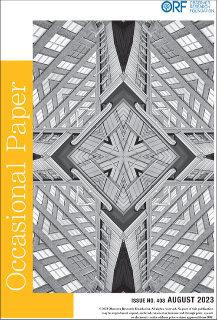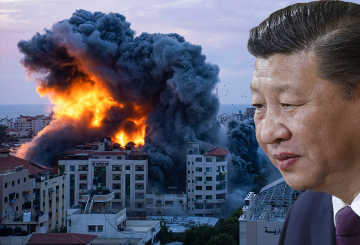Close to 24 hours after polling closed in the general election, Imran Khan, leader of the Pakistan Tehreek-e-Insaaf (PTI) party, addressed the nation for the first time as new Prime Minister of Pakistan.
Khan pledged to bring governance “like no other government had ever before”, promising to strengthen democratic institutions, tackle corruption, bring wealth back to the hands of the masses and make Pakistan an investment friendly nation. On matters of foreign policy, he stated that he hoped that India and Pakistan could develop better relations, resolve their issues diplomatically instead of blaming one another. News anchors, giddy with excitement, fell over themselves to praise Khan’s speech and historic win, calling it the beginning of a 'naya' Pakistan. Leads coming in have the Khan’s PTI leading in 119 out of 272 National Assembly seats. This is a major improvement from their performance in 2013 where they were the third largest in parliament. While media pundits and pre-election polling had Khan’s party leading, Nawaz Sharif’s PML-N was running a close race. That gap widened as the night progressed. And as PTI’s numbers continued to climb overnight, the opposition parties rejected the vote and cried foul.
The PML-N and Pakistan People’s Party (PPP) both of whom received 61 and 40 seats respectively, have alleged election rigging and fraud. In some parts of the country, people have reported army officials pushing election commission personnel out of polling booths, in seats where votes were being counted or were too close to call. In other instances, PML-N candidate Shehbaz Sharif said that his party workers were not given the correct documentation to be present at the polling booth and had been thrown out. The Election Commission of Pakistan has denied all allegations and has asked for parties to approach the Commission with specific complaints. Khan, has announced that he will look into allegations of fraud and that he would be happy to support investigations into any incident. It has been the culmination of a 22-year-old journey for Khan, who founded PTI in 1996. From his first election to the National Assembly in 2002, to PTI emerging as the second largest party by popular vote in 2013, the former cricket captain has come a long way. His campaign for the 2013 election was founded on a manifesto of anti-corruption, anti-poverty and bringing an end to Pakistan’s dynastic politics. Khan lost the election, but made his mark, coming from political obscurity to being the third largest party in parliament. A year after losing that election, that made Nawaz Sharif prime minister for the third time, Khan alleged that the election was rigged and accused Sharif of electoral fraud. Demanding his resignation, tens of thousands of anti-government protesters staged a massive rally in Islamabad with a sit-in that lasted four months. International observers have judged the 2013 polls as having been considerably better than previous elections.
The irony is not lost on anyone, as to how the tables of fortune have now turned. Today as Imran Khan takes charge in Islamabad, the ‘loser’ or opposition parties are screaming fraud.
This however, is not surprising given that in the months leading up to the election, Pakistani and international media have reported a media clampdown. A number of media outlets and journalists were instructed to stop their ‘pro-Nawaz propaganda’, by being threatened, blackmailed and harassed. Geo TV, which covered the new grassroot, Pashtun Tahafuz Movement rallies against discrimination and violence by security forces, was blacked out for days until reaching an apparent understanding with the army. Dawn, a leading English-daily, had its distribution forcefully stopped in parts of the country because of its reportage about disagreements between the civilian PML-N government and the military. Prominent journalist Gul Bukhari, who has been vocal about her distaste for military meddling in politics, was abducted in Lahore one night, only to be released a few hours later, never to speak a word about her abductors. These occurrences, among others, have shown the dark guiding hand of the military in keeping control of the election narrative.
The military’s disdain for Nawaz Sharif and his party is well known and stems from the latter's decision to try former president and military dictator General Pervez Musharraf for treason. Many believe that the corruption cases filed against Nawaz Sharif and his family are a sign of a ‘judicial coup’, a response to Sharif going against the army. The Supreme Court removed Sharif from the post of Prime Minister last year and, earlier this month, he was sentenced to 10 years of rigorous imprisonment and fined $10 million by an anti-corruption court.
Since he emerged on the political scene, Khan’s platform of anti-corruption has been tainted by a number of actions undertaken by his party. Over the years, the PTI has allowed a number of PML-N and PPP defectors to join their party, the same parties Khan had criticised for being part of the status quo and corrupt. His absorption of veteran politicians was justified on the basis of their ‘electability’; in other words, they knew the system (and the voters would come with them). Khan put his principles aside in the hope that they will be able to secure his victory. He is accused of being a Taliban apologist, saying that the media has failed to understand the real problem: it is not Pakistan, but the West that has brought radicalism to Pakistan, with its war against terror in Afghanistan.
Another allegation against Khan is that his PTI government in Khyber Pakhtunkhwa province funneled tax payer money to a madrassa run by an extremist cleric, known as the ‘father of the Taliban’ because of the number of militant leaders he has taught. Khan’s defense was that it was an attempt to mainstream the madrassa system into Pakistan’s education system. In addition to his ‘soft approach’ towards the Taliban, he has also refused to condemn Pakistan’s controversial blasphemy laws that target minority groups such as Ahmadis and Christians.
Nonetheless, the end of the chaotic election year has ended with him on the throne. From protesting at Sharif’s doorstep, he is now knocking down the door. In Punjab, Sharif’s home ground, PTI has run an extremely close race, wrestling Sharif’s core supporters away. Former Prime minister Shahid Abbasi who ran the government for seven months after Sharif’s ouster, lost both the seats he was contesting from. Similar to Abbasi, fomer Interior Minister and PML-N leader Nisar Ali Khan also lost his parliamentary seat in a surprising defeat. This has shown a strong rejection of the PML-N.
As Khan begins his reign as Prime Minister the first challenge he needs to confront is the allegations of electoral rigging and fraud. In the past, he has accused the government of fraud and he will now have to deal with the opposition parties accusing him of the same. While this maybe a result of a certain incompetence on behalf of the Election Commission, it is also a reflection of the fact that there is also no tradition of accepting electoral defeat with grace and humility in Pakistan. Once you lose, you blame the opponent for cheating.
It is unlikely that Khan, despite his confident swagger, popular support and idealistic vision will be able to live up to all his promises. The military led by General Qamar Bajwa and ISI Chief Naveed Mukhtar will continue to hold the reins on national security, defense and relations with India and Afghanistan. It is for Khan to focus on reforming Pakistan in areas where he can make a difference. As Pakistan’s next leader he will need to deal with its looming debt crisis, numerous IMF bailouts and a crippling economy. The country faces an extreme power shortage, environmental degradation, low education and healthcare levels and political disenfranchisement. To tackle these issues, Khan must not only invest considerable political capital but ensure that he keeps the military on his good side.
Imran Khan is a demagogue politician that may inspire optimism among the masses, but he is restricted by a bipolar system that supports his election but controls his influence. The sooner he realises that Nawaz Sharif was also once the army’s favourite child, the better he will be able to toe the line in his relationship with the military. As the famous anarchist, Emma Goldman, once said, “If voting changed anything, they’d make it illegal.” Nothing could be more apt when talking about Pakistan.
Imran Khan may have won the popular vote, but it won’t change anything regarding who truly holds power.
This commentary originally appeared in News18
The views expressed above belong to the author(s). ORF research and analyses now available on Telegram! Click here to access our curated content — blogs, longforms and interviews.




 PREV
PREV


